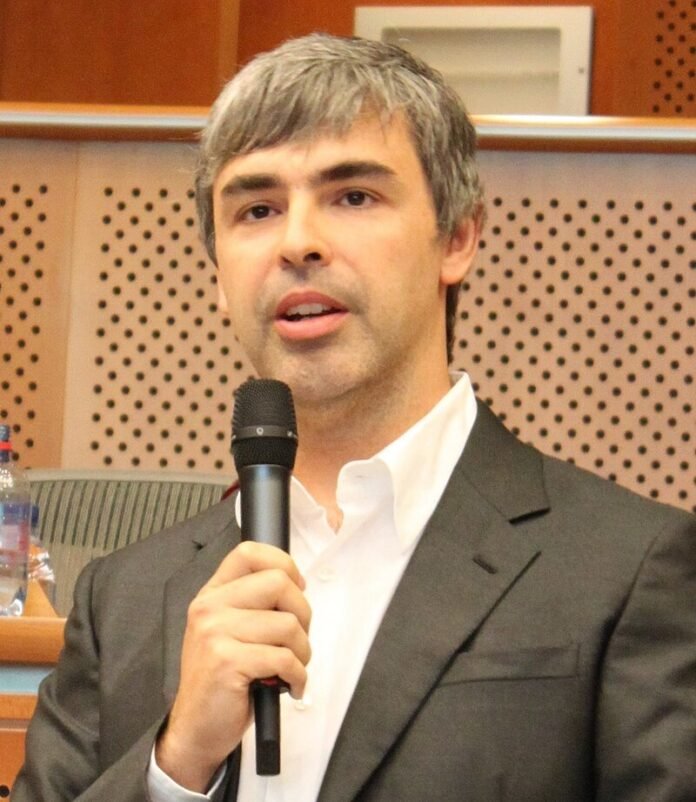Larry Page, co-founder of Google and a visionary in the tech industry, has redefined how the world accesses and understands information. Born Lawrence Edward Page on March 26, 1973, in Lansing, Michigan, Page’s passion for technology was practically inherited—both of his parents were in computer science, with his father, Carl Victor Page Sr., a computer science pioneer and professor, and his mother, Gloria Page, a computer programming instructor.
Early Fascination with Technology
Growing up in a home filled with computers, gadgets, and science magazines, Page was deeply influenced by the scientific atmosphere around him. As a child, he showed a natural curiosity, often dismantling household objects to learn how they worked. His interest in technology was so intense that by elementary school, he had become the first student in his class to submit an assignment typed on a word processor.
Page’s early education was shaped by Montessori principles, which emphasized self-directed learning and creativity. This foundation likely contributed to his unique approach to innovation. In high school, he continued exploring technology and enrolled at the University of Michigan, where he pursued a degree in computer engineering. Known for thinking outside the box, Page even suggested the university replace its bus system with a driverless monorail, hinting at his later fascination with autonomous vehicles.
Stanford and the Birth of Google
Page’s educational journey led him to Stanford University for a PhD in computer science, where he met Sergey Brin, a fellow doctoral student. Initially bonded over a shared interest in understanding the web’s structure, they began a research project that would become Google. Together, they developed the PageRank algorithm, an innovative system for ranking web pages based on their interlinking structure. This algorithm was revolutionary and positioned Google as a superior search engine compared to its competitors.
In 1998, after developing a prototype of their search engine in Page’s dorm room, they officially launched Google Inc. with the backing of a $100,000 check from Sun Microsystems co-founder Andy Bechtolsheim. Google’s mission—“to organize the world’s information and make it universally accessible and useful”—drove its rapid growth.
Leading Google: A Decade of Innovation
Initially serving as Google’s CEO, Page’s leadership style was unconventional yet effective. He preferred direct communication and believed in empowering engineers rather than relying on extensive management layers. His approach, combined with a relentless drive for innovation, led Google to launch products like AdWords and Google Maps, which transformed online advertising and navigation, respectively.
After stepping down as CEO in 2001, Page remained deeply involved in Google’s strategic decisions, focusing on product development. Notably, he led the acquisition of Android in 2005, which positioned Google at the forefront of the smartphone revolution. Under his guidance, Android became the most widely used mobile operating system worldwide, reshaping the mobile industry.
A New Vision with Alphabet
In 2011, Page resumed his role as Google’s CEO, determined to refocus the company on ambitious projects. This period saw the initiation of “moonshot” ideas—high-risk, high-reward innovations—that led to projects like Google Fiber, autonomous driving with Waymo, and advancements in artificial intelligence through Google Brain.
In 2015, Page took a bold step to reorganize Google’s structure, creating Alphabet Inc. as a parent company. This restructuring allowed Google to concentrate on its core business, while other divisions like Calico (biotechnology) and X (research and development) operated independently under Alphabet. This new model enabled each division to innovate freely while benefiting from centralized resources.
Beyond Google: Page’s Legacy and Investments
While Page stepped down as Alphabet’s CEO in 2019, he remains a key influence in the tech world and a driving force behind futuristic technologies. He has invested in ventures such as flying cars with Kitty Hawk and Opener, and renewable energy, reflecting his commitment to sustainable and transformative technology.
Larry Page’s legacy is more than Google. His vision for the future goes beyond search engines and algorithms; he imagines a world where technology improves lives on a grand scale. His philosophy of “10X” improvement challenges conventional incremental progress, inspiring teams to pursue groundbreaking innovations. Page’s journey from a curious child surrounded by computers to a tech icon has not only shaped the digital landscape but continues to push the boundaries of what technology can achieve.



